
Research and Creative Activity Highlights
Bringing AI to Farming
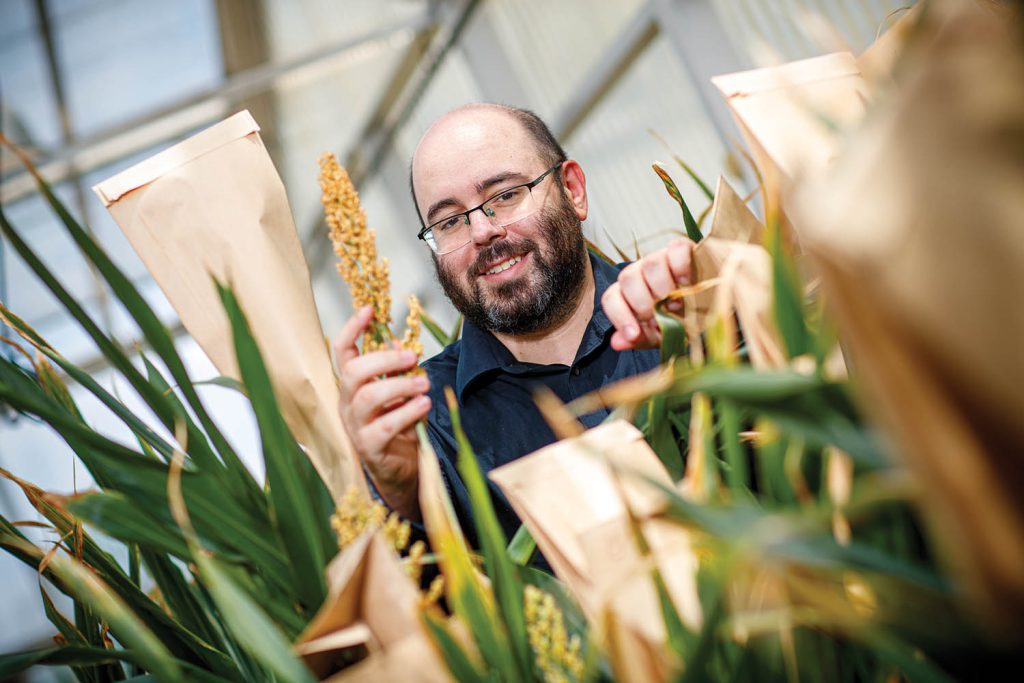
Nebraska is helping the nation bring artificial intelligence to farming, strengthening the university’s leadership in agricultural resilience.
UNL, in partnership with seven other institutions, launched the AI Institute for Resilient Agriculture. AIIRA is one of 18 National Science Foundation-led AI institutes.
AIIRA focuses on creating digital twins, or virtual copies, for use in agriculture. The AI technology will enable researchers and producers to simulate what-if scenarios and apply their findings to on-the-ground decision-making, leading to improved varieties and increased yields.
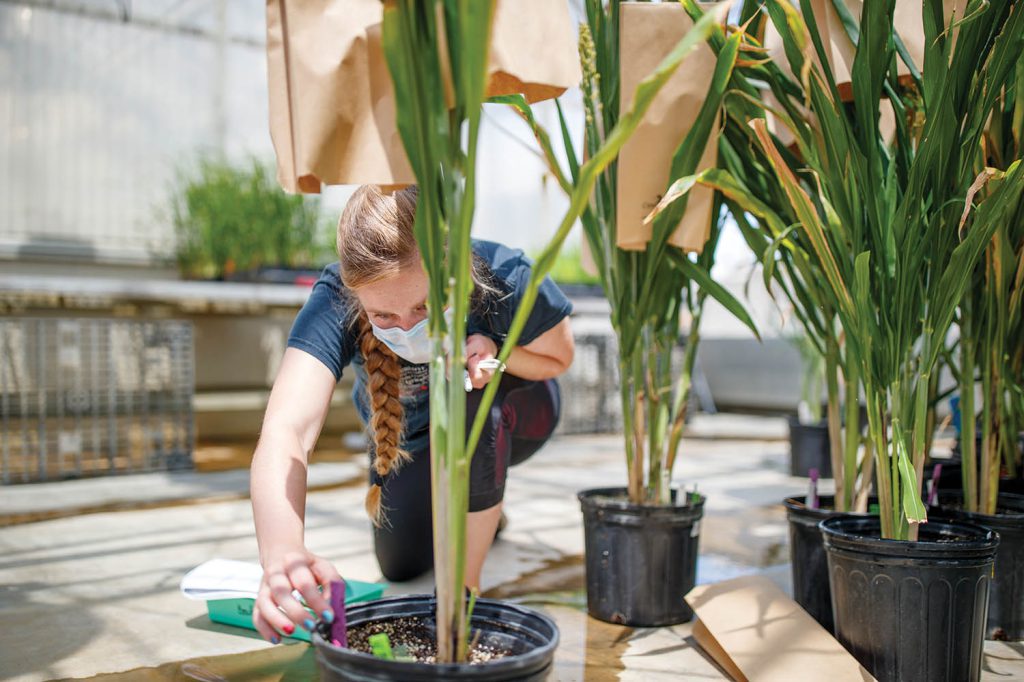
“Creating a digital twin means building a model of how plants perceive and respond to their environment,” said James Schnable, Charles O. Gardner Professor of Agronomy and AIIRA research member. A digital twin could be a single plant or an entire field.
Nebraska brings a uniquely diverse range of geography, climate and soils to the institute, he said.
Iowa State University leads this collaboration with Nebraska and six other institutions. Other partners include industry members, governments and commodity groups.
A $20 million grant from the NSF and the U.S. Department of Agriculture’s National Institute of Food and Agriculture funds AIIRA.
Nebraska news release: Husker researcher part of multi-university effort to improve ag decision-making
Improving Irrigation Efficiency
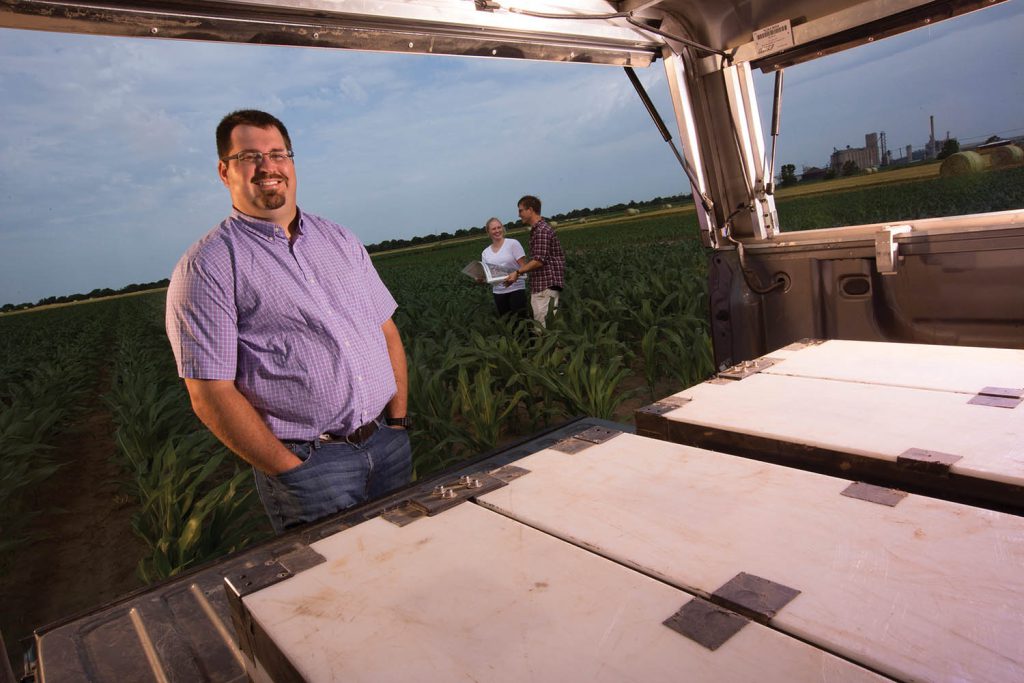
Soil moisture sensors help farmers maximize yields while conserving water. Yet few use them.
Nebraska hydrogeophysicist Trenton Franz gets it – sensors can be time-consuming. So he and his team developed a streamlined irrigation approach to help water users irrigate more efficiently.
Improving water efficiency is critical as global climate change threatens water resources.
Franz’s team created an irrigation-scheduling algorithm that calculates water available in both the soil and atmosphere.
“That’s fairly complicated, so this algorithm does a fairly nice job of trying to basically optimize the processes as well as making it more automatic,” said Franz, associate professor of hydrogeophysics and associate director for research in the School of Natural Resources.
The multidisciplinary team found that the algorithm-guided irrigation approach reduced irrigation water use by 24% while maintaining crop yields and increasing profits 11% and water productivity by 25%. As a result, the article said, this new methodology “could significantly improve water sustainability.” Results appeared in Nature Communications.
Nebraska news release: Husker researchers develop tool to make irrigation more efficient
Record Gift Supports Depth Reporting

A Nebraska farm family has gifted its land to support Nebraska’s College of Journalism and Mass Communications.
Proceeds from the $4.65 million sale of land owned by the Martin and Doris Deepe family established the Deepe Family Endowed Chairs in Depth Reporting, the largest single gift the college has received.
It funds two new faculty: one specializing in investigative reporting and another in data journalism.
In an increasingly data-driven world, data literacy is an essential skill for journalists. The new faculty positions ensure Husker graduates have vital research skills and the funding to investigate significant stories in the Great Plains and tribal communities.
The gift enables the college to continue its depth reporting program, which has won numerous prestigious awards, including the Robert F. Kennedy Journalism Awards Grand Prize, said Shari Veil, college dean.
“The impact of the Deepe family’s gift will be felt by generations of UNL journalism students,” she said.
Nebraska news release: Deepe family provides record gift for journalism depth reporting at Nebraska
Probing Cellular Metabolism’s Role
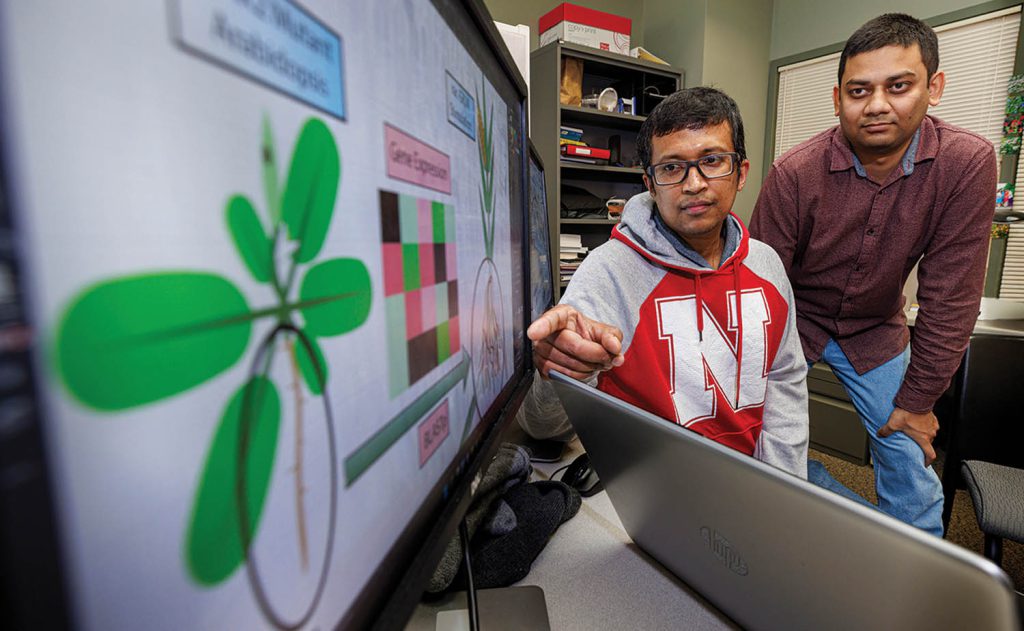
Cellular metabolism likely plays a key role in controlling immune response to pathogens and cancer cells. Better understanding that role could lead to therapies that boost immunity.
Nebraska engineer Rajib Saha studies metabolic changes that occur when specific types of white blood cells encounter the bacteria Staphylococcus aureus and SARS-CoV-2, the virus that causes COVID-19.
He’s also investigating how these white blood cells affect pancreatic cancer cell metabolism and whether cellular changes influence disease severity.
Saha, associate professor of chemical and biomolecular engineering, received a $1.8 million Maximizing Investigators’ Research Award from the National Institutes of Health for this research.
Saha’s work is computational. His team creates computer models to determine how cells and pathogens might interact in a host. Colleagues test Saha’s findings in the lab.
His research could also provide a template to investigate other diseases. Saha collaborates with the University of Nebraska Medical Center.
Nebraska news release: Husker scientist studying cellular metabolism’s role in fight against diseases
Manufacturer Partners with Architecture
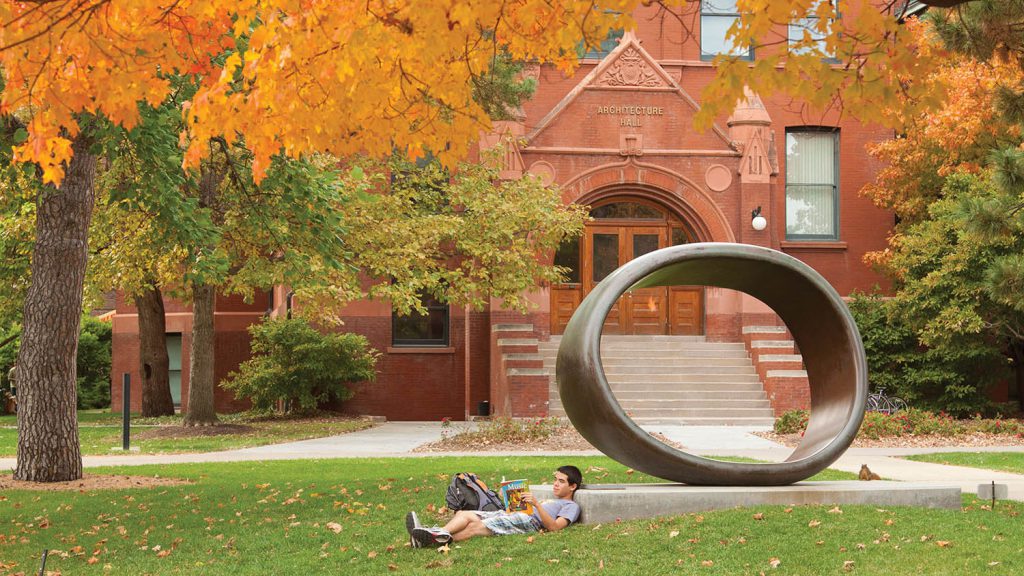
Nebraska’s College of Architecture received a $50,000 gift from the Nebraska-based manufacturer Timberlyne to establish the Sand Creek Post & Beam Design and Fabrication Fund.
The fund provides grants to support architecture faculty and students in wood construction research and fabrication. The gift promises to elevate design excellence, innovation and student engagement.
Husker alumni Jule Goeller and Len Dickinson founded Sand Creek Post & Beam Inc., now Timberlyne, in 2004 in Wayne, Nebraska. By investing in education and innovation, the couple seek to advance mass timber construction and encourage trends toward healthier living and a cleaner environment.
Architecture Program Director David Karle said, “It brings together faculty, students and industry partners to research and fabricate new and innovative solutions for mass timber. Through these experiential learning opportunities, our students can apply classroom knowledge to real-world scenarios.”
Nebraska news release: Nebraska manufacturer partners with college with investment in innovation and research
Press Launches New Book Series

A new book series, Many Wests, builds on the University of Nebraska Press’s longstanding leadership as a publisher in the history and culture of the American West.
The first book in the series, The Settler Sea: California’s Salton Sea and the Consequences of Colonialism by Traci Brynne Voyles, was published in fall 2021. It is an original exploration of the Salton Sea, Southern California’s largest inland water body.
Many Wests will publish distinguished scholarship that advances western history methods and topics. The books in the series will capture for scholars and general readers alike evolving interpretations of the history of the American West.
Forthcoming books in the series will explore topics including nature and the American empire, American Indian and American art of 20th century New Mexico, Indigenous foodways, the coal industry and Black Hills tourism.
Evaluating Employee Evaluations

Deciding to promote one employee over another may come down to the method used to evaluate them, a Nebraska study found.
Results suggest organizations should consider values and culture when selecting an evaluation system.
Todd Thornock, assistant professor of accountancy, and his University of Texas at Austin collaborator examined two common types of evaluations: one that holistically assigns an overall score and a disaggregated system that uses multiple ratings with underlying metrics.
They tasked students with evaluating two employees vying for assistant manager: one the better salesperson, the other with higher managerial potential.
With a promotion looming, students inflated the score of the second candidate – who was better suited for the position but lower performing in terms of sales – when using the holistic system. Students promoted that candidate 73% of the time, compared with 57% using the disaggregated evaluation.
Inflating holistic scores justifies promotions, while disaggregated systems curb subjectivity. Although holistic systems empower managers, the study suggests that organizations lacking trust or combating real or perceived biases may favor disaggregated methods.
Nebraska news release: Going up? Slight difference in evaluation systems could sway promotions
